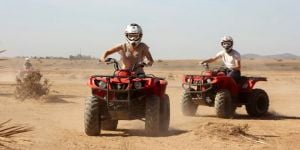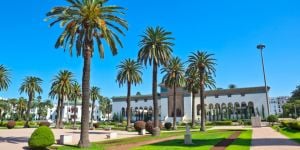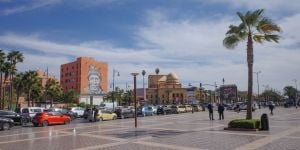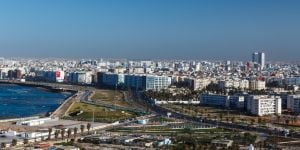
Are you interested in moving to Morocco, but worried about not speaking the language? Morocco is a diverse country of many languages, and it can be confusing to figure out which one to focus on learning. This guide lists the major languages, and when and where they are primarily used. Although it can be challenging for expats to pick up on the diversity of languages used, your time in Morocco will likely be marked by rich learning experiences as you become immersed in both the language and the culture of the country.
Moroccan Arabic - Darija
The Moroccan dialect of Arabic, called Darija, is what more or less all Moroccans speak most comfortably. It is unfortunately quite different from Standard Arabic, with a different pronunciation, different verb conjugations, and a lot of different vocabulary. If you already speak a dialect of Arabic, you might be able to understand Darija but unlikely to be able to speak it. Darija is only a spoken language, so if you want to learn it, you have to do so by talking to people. There are some classes you can take, or you could try to find a Moroccan language partner. If you do manage to learn to speak Darija, you will undoubtedly make a lot of local friends!
Example phrases
English Transcript
Hello Salam
How are you? Ki dayer
Thank you Chokran
I'm good Bi khayer
How much is this? B' shhal hada/hadi
Berber
Berber is one of the official languages of Morocco, along with Arabic. It is the language spoken by the native population of Morocco before the Arab conquest. It is somewhat rare to find Berber speakers, although some Moroccans speak it within their families, and it is spoken in many rural villages and in the south. It's interesting to note that in other parts of the country (mostly in the Atlas, and Rif, people speak different variants of Berber).
Standard Arabic
Standard Arabic is the language of laws and news in Morocco and is what is used for written materials such as newspapers and books. It is rare to hear it spoken, as it is a very formal language. If you speak Standard Arabic, you might be able to communicate, but you will likely sound very strange to the ears of a Moroccan. You can study the language in centres, particularly in Fez and Rabat, and Casablanca
French
French is the language of business and university studies. Many Moroccans are fluent in French or at least will be able to engage in basic communication. French is probably the easiest language to use to get around in Morocco, as it is easier to learn than Arabic, and is very widely used. It is also useful if you wish to work or study in Morocco. You can learn French in language institutes in most major cities. Announcements in train stations or other public areas are usually in Arabic and French, so you can get around pretty easily speaking just French. Still, most Moroccans are not exactly fluent in French.
English
Although English is used far less than French, its popularity has been growing. As Morocco becomes more developed, English has become an important language for doing business with the rest of the world. Several universities now offer programs in English, and there are language centres in most cities that are full of English language learners. Getting around speaking only English can be challenging, but it is fairly easy to find friends who want to speak English, and there are many expats working as an English teacher.
Spanish
Spanish is spoken in some of the northern regions of Morocco. It is also used in companies who do business with Spain. It is not common to find many Spanish speakers, but there are Spanish cultural centres in many cities that teach the language.
Good to know:
In most major cities, you can find Arabic and Darija classes, make sure you check online and ask in your native country's local cultural centre (if any).
Useful link:
We do our best to provide accurate and up to date information. However, if you have noticed any inaccuracies in this article, please let us know in the comments section below.








